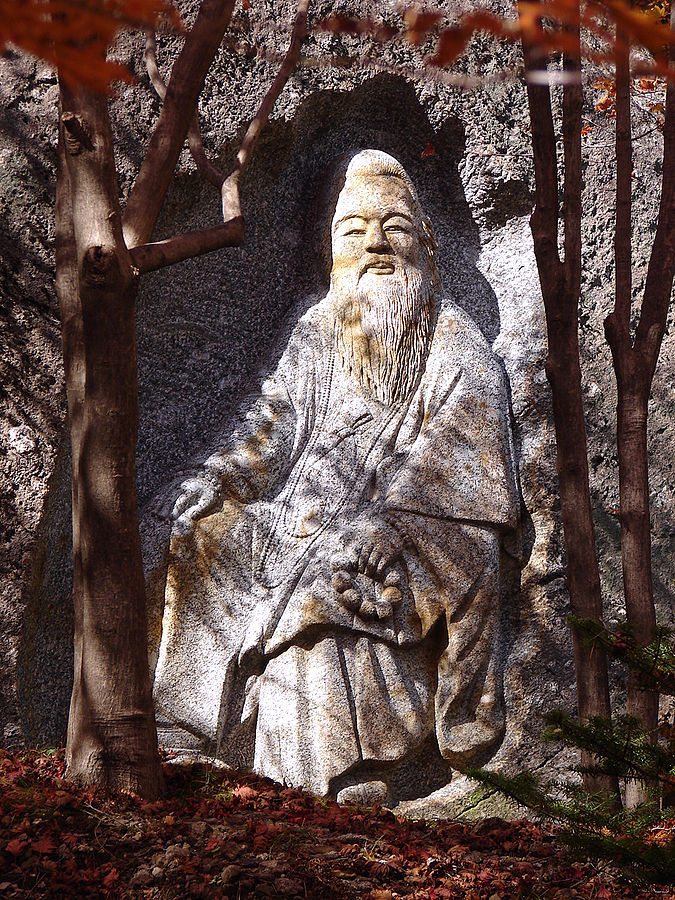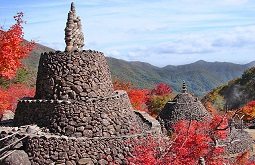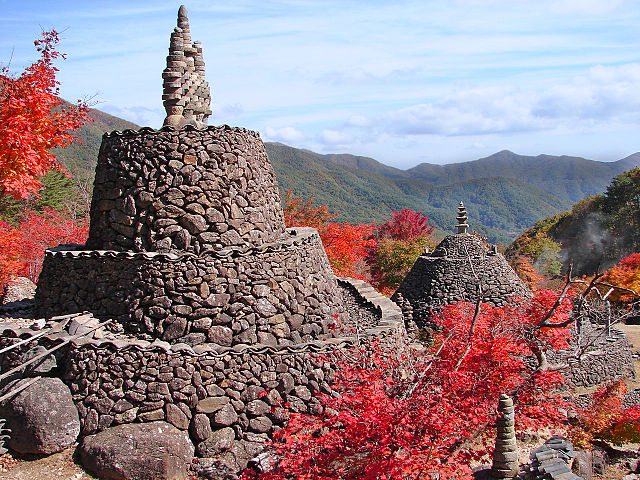The story of Tangun is important to Korean self-understanding, as are all founding myths and legends. Debate over the Tangun myth’s historicity misses the opportunity to reflect on the principles and values that have bound the Korean people together through five millennia. A concise retelling of the myth can be found here.

Photo of Hwanin (한인) at Samseonggung (Three Sages Palace) on Jiri Mountain honoring three founding figures of Gojoseon, Hwanin, Hwaneung and Dangun. (Photo by Steve46814 CC License Attribution-ShareAlike)
One of the often overlooked facts of the Tangun myth is that the story actually starts with the grandfather, Hwanin (한인) – the Lord of Heaven. This basic element of the story is worth exploring in that it points to a long history of profoundly filial loyalty on the part of the Korean people to the Divine.
The symbolic importance of such a being in the Heavens has had a lasting impact on the psyche of the Korean people. Korean monarchs through history derived their status as a representative of the Lord of the Heavens and were expected to rule as a parental figure for the whole of society. Kings and queens maintained legitimate rule over the people through wise and compassionate rule.
The most celebrated king in Korean history, King Sejong, reflects this attitude in a most remarkable way:
At a time when the monarchs of neighboring states were glorifying their offices with divine-like honors, King Sejong of Korea established the notion of the “People of the Heavens.” Sejong, who revered each and every one of his people as being of Heavenly origin and served them as such, believed that the duty of a king was no more than to look after the people of a noble, heavenly race.
Such an exceptional attitude of a monarch towards his people is exemplified in his tremendous effort to spread literacy throughout his kingdom by establishing the Korean alphabet, hangul. This alphabet “leveled the playing field” in ways that threatened the structures of a highly stratified society. His willingness to persevere despite powerful opposition from the nobility reflects King Sejong’s compassion for the common people and his determination to establish a more universal educational system.
When considering the relationship between Tangun, Hwanug (환웅) and Hwanin as that of son, father and grandfather, it explains the reverence Koreans have long held for their extended families. Tangun(단군) and Hwanug both brought honor to Hwanin through different forms. Hwanug, driven by compassion brought to Earth principles from which to “govern by truth” and Tangun established a nation based on these Hongik Ingan ideals.
The story of the first ancestors is the first among many stories that focus on the theme of familial devotion in Korean folklore. The beloved tales of Shim Cheong (심청) and Choon Hyang (춘향) focus on deep emotional bonds within the family and points to virtues – not birthright – as the prerequisites to rule. Filial piety in the family has often paralleled to patriotism in the nation and monarchs are lauded or despised based on their devotion, or lack thereof, to their own family.

Heavens Lake (天池) in Mt. Baekdu, on the border of North Korea and China. (Photo by Bdpmax, GNU Free Documentation License)
The fact that the Korean people see themselves as the descendants of Heaven also explain the noble ideal of Inaechon (人乃天) that took life in the 20th century during the Donghak movement, the idea that people are of equal value to the Heavens. The implications and applications of such an ideal would surpass the bare minimum requirements of human or civil rights because it speaks to a human dignity with value rooted in the Divine. One might imagine how differently education, business and governance would be handled with such an ideal at its core.
As stated in our introduction to Korean Myths, these myths aren’t just stories – they inform that way we should live and work in our world today. While we can see the importance the Tangun myth for Korean self-identity and understanding, it becomes more important to use this knowledge in order to act for the betterment of all society and the world. If we can extend this beautiful tradition of filial piety, the will to govern from truth and the discipline of hard work for the benefit of all humanity – we bring Heaven to the people and fulfill the dreams of the first ancestors.


